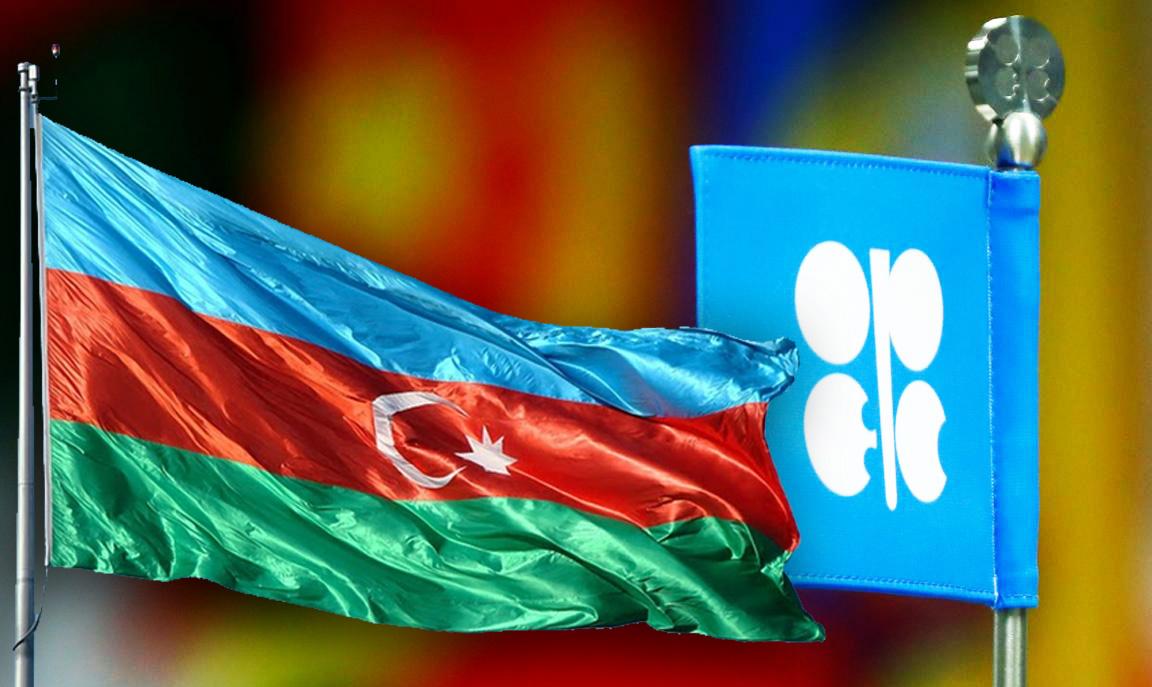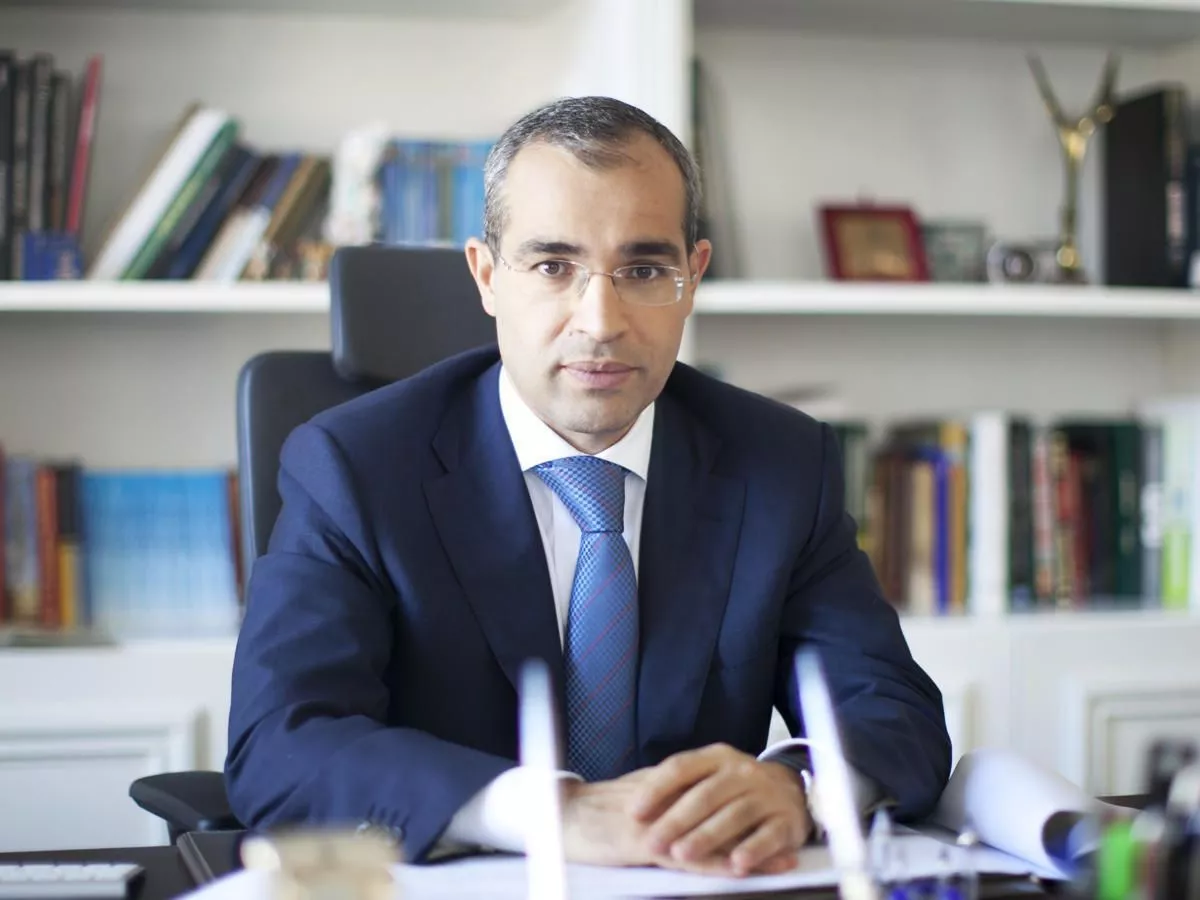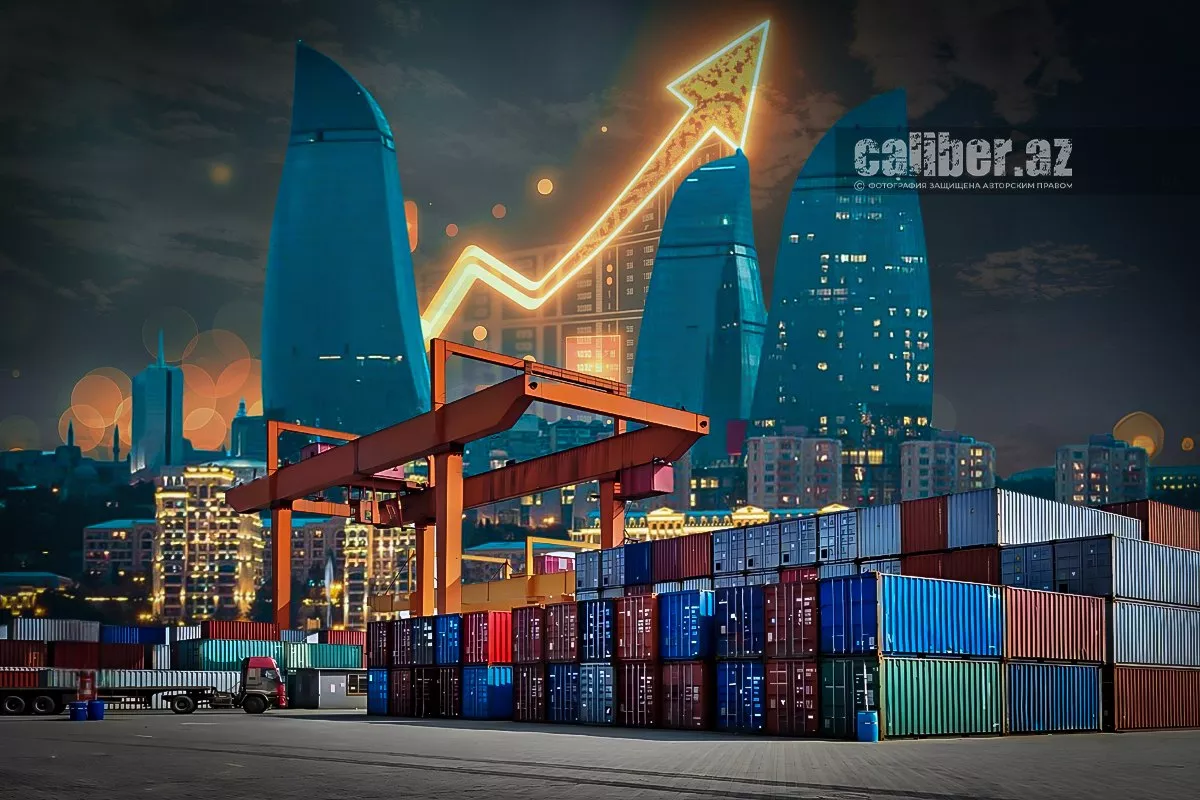Azerbaijan expands partnership with OPEC Business bridge to the Persian Gulf
In recent years, Azerbaijan has identified the Persian Gulf region as a key direction for expanding trade and economic cooperation. The most dynamic partnerships—in areas such as trade, green energy, tourism, and investment—are developing with Saudi Arabia, the UAE, and Qatar. This interest is mutual, as evidenced by the recent signing of a framework partnership agreement between Azerbaijan’s Ministry of Economy and the OPEC Fund for International Development.
The agreement, designed for the period from 2025 to 2030, was signed in the Austrian capital, Vienna, by Azerbaijan's Minister of Economy Mikayil Jabbarov. It provides support for public and private sector projects in industries such as manufacturing, renewable energy, transport, infrastructure, and more.
Azerbaijan has been one of the key participants in the Declaration of Cooperation (DoC) between the Organisation of the Petroleum Exporting Countries (OPEC) and non-OPEC states for nearly a decade. Since the declaration’s signing in 2016, Azerbaijan has actively engaged in the OPEC+ format, established to stabilise the global oil market by coordinating production levels. At present, the country continues to support the collective decision to maintain stable oil output through to the end of 2026. Azerbaijan’s efforts in this regard have not gone unnoticed.

“Azerbaijan, a key participant in the Declaration of Cooperation (DoC) between OPEC and non-OPEC producers, has become a global hub for constructive dialogue on critical energy issues. This was evident at COP29 and will undoubtedly be reaffirmed at the 30th Baku Energy Forum, a premier event in the region’s energy calendar,” noted OPEC Secretary General Haitham Al Ghais in a welcome letter to participants of Baku Energy Week, held from 3–5 June 2025.
It is hardly surprising that Azerbaijan’s productive engagement within the OPEC+ framework has also indirectly boosted its ties with the cartel on other levels—particularly in attracting investment and fostering technical, project-based, and institutional cooperation. Years of steady collaboration are now translating into concrete initiatives, both through direct cooperation with OPEC itself and joint investment projects with key member states.
Most recently, in Vienna—where an Azerbaijani delegation is participating in the ongoing forum of the OPEC Fund for International Development—Minister of Economy Mikayil Jabbarov took part in the panel session titled “Driving Resource Resilience,” as well as other events of the forum.
“We delivered a speech during the panel session titled ‘Driving Resource Resilience,’ held as part of the OPEC Fund Development Forum. In our remarks, we emphasised the importance of effectively leveraging the interlinkages between energy, water, and food systems. We underscored that adherence to sustainable development commitments, advancing decarbonization, fostering partnerships to accelerate climate action, and promoting the use of innovative solutions are essential to achieving long-term resilience and sustainability,” the Minister wrote on his official X (formerly Twitter) account.

That same day in Vienna, a framework partnership agreement was signed with the OPEC Fund, outlining cooperation across various sectors. “Within the framework of the OPEC Fund Development Forum, we held a meeting with Abdulhamid Alkhalifa, the President of the Fund. During the meeting, we noted that our mutual cooperation contributes to the diversification of our country’s energy sector. We also discussed opportunities for collaboration in renewable energy, infrastructure, and technical assistance,” Jabbarov wrote on social platform X.
According to the Minister, the agreement—covering the period from 2025 to 2030—envisions support for both public and private sector projects in areas such as industry, renewable energy, transport, infrastructure, and more. The initiatives undertaken within this framework are expected to promote climate financing, inclusive growth, and the development of small and medium-sized enterprises.
The day before, Azerbaijan’s Minister of Economy also held a meeting with Mohammed Saif Al Suwaidi, Director General of the Abu Dhabi Fund for Development (ADFD), which is part of the Arab Coordination Group. During the talks, both sides emphasised the importance of strengthening trade and economic ties between Azerbaijan and the UAE. They also highlighted the UAE’s investments in Azerbaijan’s renewable energy sector, as well as the Fund’s support for infrastructure projects across the country.
Discussions focused on cooperation in areas such as energy, infrastructure, and innovation, alongside exploring investment opportunities by the Fund in Azerbaijan’s priority sectors.
In recent years, Azerbaijan has steadily expanded its business relations with OPEC member states—particularly the leading countries of the Persian Gulf. Notably, tourism ties with Gulf countries have seen marked growth, supported by an increase in direct flights, simplified visa procedures, and the introduction of visa-free regimes for many nations.

Over the past eight years, Azerbaijan’s Ministry of Economy and its affiliated institutions—such as the Azerbaijan Export and Investment Promotion Agency (AZPROMO) and the Small and Medium Business Development Agency (KOBIA), along with the country’s trade missions—have undertaken a broad range of efforts to geographically diversify the nation’s agricultural and industrial exports. A key focus of these efforts has been the Arab states of the Persian Gulf.
In recent years, thanks to targeted promotion and marketing campaigns, products under the Made in Azerbaijan brand have gained growing visibility in retail chains across the United Arab Emirates, Saudi Arabia, Oman, Bahrain, Qatar, and other countries in the region. These exports include organic Azerbaijani honey and tea, dried fruits and sweets, narsharab (pomegranate sauce), lavender and olive oils, juices, canned fruit and vegetable products, sturgeon caviar, as well as polymer raw materials, textiles, carpets, silk products, and more.
These efforts have had a tangible impact on trade dynamics. In 2017, the year the first Azerbaijan–Gulf Cooperation Council (GCC) Economic Forum was held, trade turnover with the Gulf states stood at $69.5 million. By the end of 2023, it had grown 2.5 times to reach $175 million. In 2024, trade with the Gulf countries rose by more than a quarter compared to the previous year.
However, the most distinctive feature of Azerbaijan’s business relations with the Persian Gulf region lies in the substantial investment portfolio it has attracted. According to AZPROMO, the total volume of direct investments from Gulf countries into Azerbaijan’s economy exceeded $4 billion as of last year.
The investment interest from GCC states spans a wide range of sectors, including carbon-based and renewable energy, mining and petrochemicals, tourism, small and medium enterprises, logistics and transport, food processing, agriculture, and food security. A significant surge in investment activity began in 2022, driven by major players such as Saudi Arabia’s ACWA Power and the UAE’s Masdar, which have become key investors in Azerbaijan’s green energy sector. Both companies are involved in the construction of solar and wind power plants across the country.
In addition, discussions are ongoing with Qatar’s Nebras Power, a company specialising in gas turbine and wind energy projects. Cooperation with Gulf investors in the renewable energy sector is expected to intensify further, eventually expanding to offshore wind development in the Caspian Sea and the production of green hydrogen.
Another promising avenue is attracting GCC-based businesses to invest in Azerbaijan’s Alat Free Economic Zone, as well as in the country’s industrial parks and districts.








